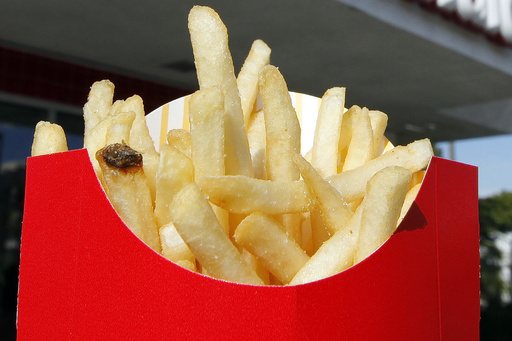
A leading supplier of frozen French fries for popular fast-food chains such as McDonald’s, KFC, and Taco Bell has appointed a new CEO following an unexpected loss in the second quarter. This downturn stems from a decrease in consumer spending on dining out.
Lamb Weston, known for producing the equivalent of 80 million servings of fries daily worldwide, has faced challenges that have been evident on Wall Street, with its stock price plunging over 40% this year. Recently, the Idaho-based company announced staff reductions, plans to shut down a facility, and cuts to production as demand has declined. The workforce of Lamb Weston comprises more than 10,000 employees across the globe.
A prominent investor in the company expressed concerns in a letter, emphasizing the need for new leadership. They pointed to what they viewed as significant errors, including a lack of foresight regarding the drop in demand as consumers scale back on eating out.
In response to these issues, Lamb Weston revealed that Mike Smith, the Chief Operating Officer, will become the new CEO at the beginning of the new year, succeeding Thomas Werner, who will remain with the company as an advisor during the transition. Following this announcement, the company’s shares plummeted by over 23%.
Chairman W.G. Jurgensen described Mike’s appointment as the result of a careful succession planning process over several years and expressed confidence in his ability to steer the company forward. Smith has been part of Lamb Weston since 2007 and was appointed COO last year.
The company shocked investors with a significant loss of $36 million for the fiscal second quarter, contrasting with a profit of $215 million during the same period the previous year. Excluding one-time expenses, the company’s earnings per share fell short of Wall Street’s forecast of $1.02 by 36 cents.
Jana Partners, the investor who delivered a critical letter to Lamb Weston, highlighted a range of complaints, including ongoing mismanagement, excessive expenses, and poor financial decisions. They also raised eyebrows over what they deemed questionable use of the corporate jet.
The promotion of the current COO, however, did not meet the expectations of the investors. Jana criticized the decision again, stating, “Today’s disastrous financial results and the appointment of a new CEO from within, who shares in the ongoing operational and strategic challenges, reflect a board that has failed to meet the needs of shareholders.” The firm, which owns over 5% of Lamb Weston shares, called for significant changes within the board or considered selling the company altogether.
Lamb Weston is currently navigating a challenging business landscape, as post-pandemic inflation has shifted consumer habits both in the U.S. and internationally. During a conference call, the company reported a drop of about 1.5% in hamburger chain traffic over the last quarter. Major food chains have attempted to boost customer visits by offering value meals, which Lamb Weston noted has negatively affected the volume of frozen French fry sales.
McDonald’s, a key player whose performance significantly influences Lamb Weston, has also been struggling. The fast-food giant faced a decline in same-store sales globally, particularly as demand weakened in China due to a slowing economy, leading to an overall drop of 1.5% in its sales numbers. The company responded by rolling out a $5 value meal in late June, continuing the promotion through December in many of its U.S. outlets to attract more budget-conscious customers.
Looking ahead, Lamb Weston has revised its earnings forecast for 2025 to a range of $3.05 to $3.20 per share, a stark reduction compared to Wall Street’s expectations of $4.21 per share.

